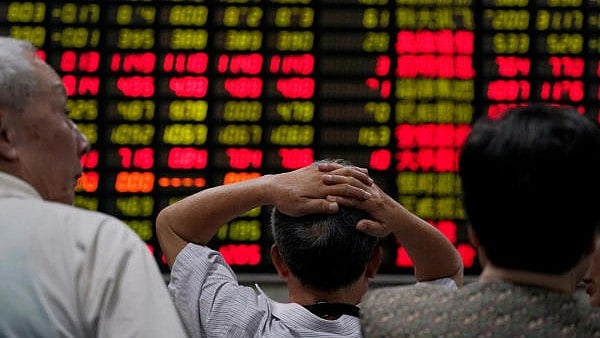
Investors look at an electronic board showing stock information at a brokerage house in Shanghai, China.
Credit: Reuters File Photo
By Mohamed A. El-Erian
It is generally agreed that this month has seen a significant escalation in long-standing Iran-Israel tensions. Both countries argue that their territory has been attacked in a manner that warrants and justifies direct retaliation. Both are threatening further escalation, notwithstanding other countries calling for calm.
Regardless of what happens next, many feel that a significant line has now been crossed in an unsettled part of the world that has experienced tremendous human tragedy, especially in the last six months. What some had deemed a relatively contained disequilibrium in the Middle East has now transitioned to a perilously unstable disequilibrium involving many parties.
As trading resumes Monday, traders and investors will react to higher geopolitical risks whose spillover can reach far and wide in asset markets. Beyond that, they must factor in the higher threat of stagflationary winds for the global economy at a time when risk-mitigating policy tools, such as fiscal and monetary measures, are already overly stretched, and inflation in the US is proving sticky.
Notwithstanding the view that this weekend’s escalation could have been much worse, it wouldn’t surprise me if Monday’s market open included higher gold and oil prices and lower stocks and government bond yields. What comes after that will be a function of whether the collective wisdom of traders and investors concludes that both Iran and Israel have sent a message to each other and thus feel that they have done enough for now. That is what international diplomacy, including Sunday’s Group of Seven meeting, aims to accomplish. However, they are dependent on the two countries’ assessment of the situation.
The global economy and markets are relatively well-placed to handle a once-and-for-all increase in the geopolitical risk premium. They are not well-placed to navigate further escalations that would involve more parties in a more significant manner.
The energy price shock that would follow such further escalations would stifle the recovery in manufacturing that is helping countries such as Germany and the UK emerge from their technical recessions. It would complicate a US inflation picture that is already subject to price increases proving more stubborn than many, including theFederal Reserve, expected. It would make the structural reforms that China needs more difficult. And it would intensify the move toward greater international economic and financial fragmentation.
There is a lot at stake, depending on what happens next between Iran and Israel. The hope is for a de-escalation there and elsewhere in the Middle East, both in the immediate and longer term. That would help contain the adverse spillovers to the global economy and markets and, more critically, also save lives and livelihoods following the tragic number of deaths, injuries, and mental and physical damage of the last six months. Whether this hope will turn into reality, however, is far from guaranteed at this stage.